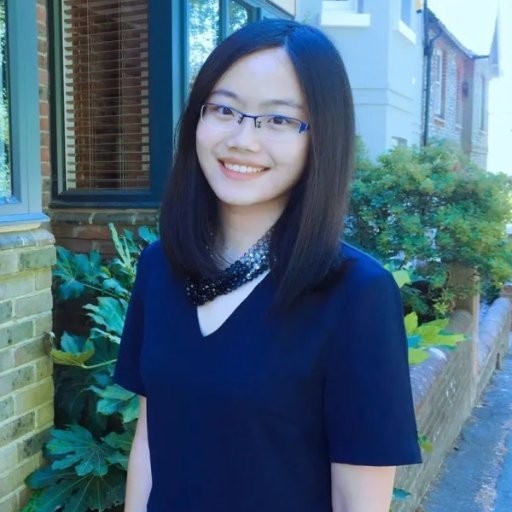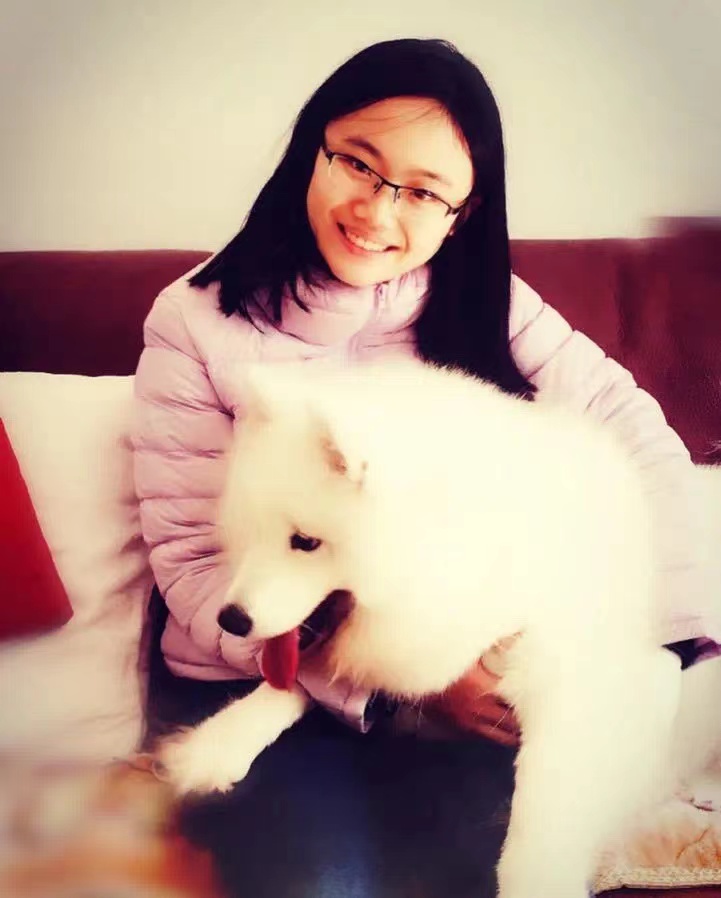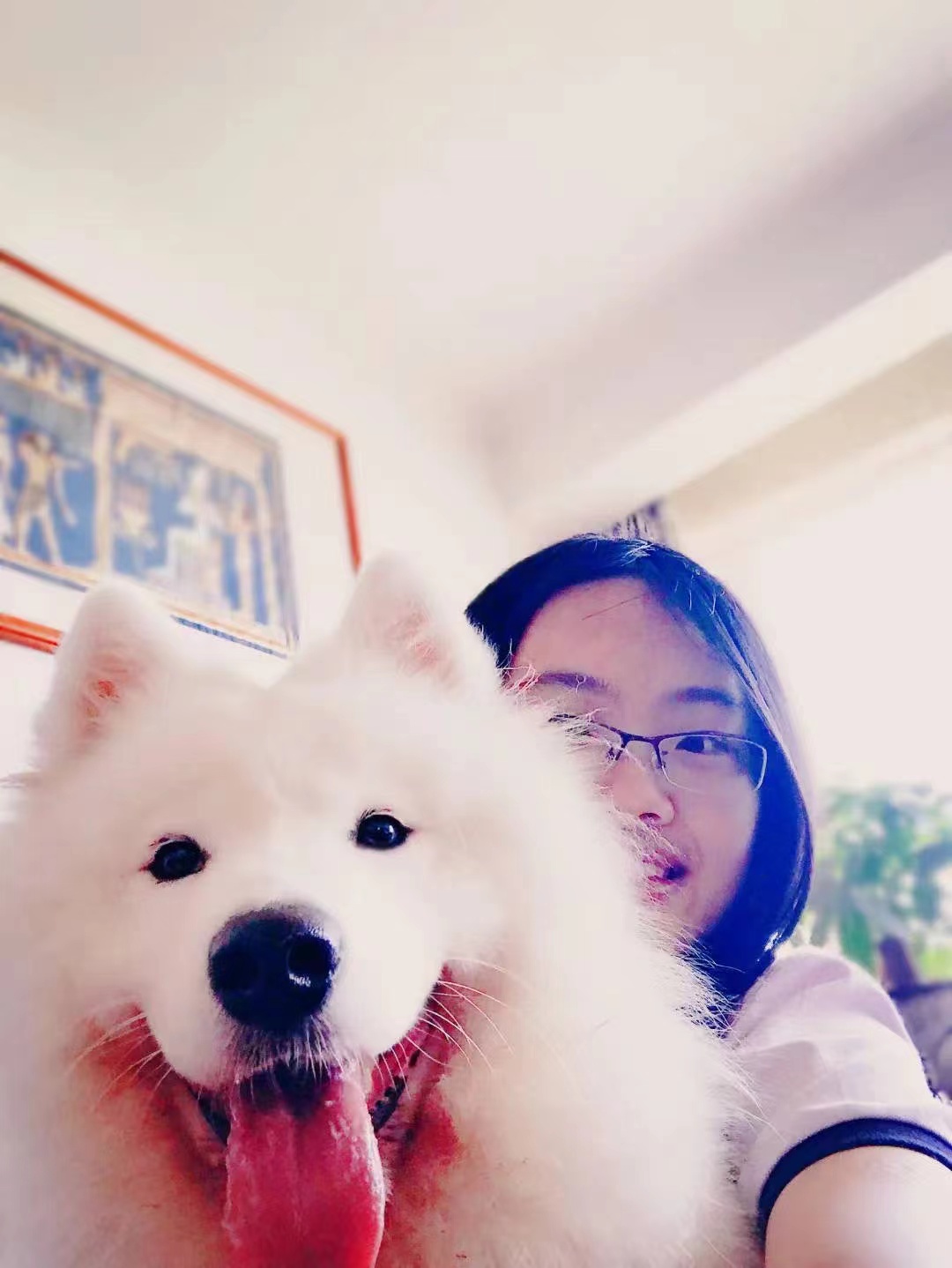 Suzie University of Cambridge, Mathematics
Suzie University of Cambridge, Mathematics
Education Experience:
Westminster School (the first full Queen's Scholarship winner for a female student)
IMO National Mathematics Training Camp, Trinity College, Cambridge
15 years old British Mathematics Olympiad - BMO1 silver medal
British Mathematics Olympiad -- BMO2 Distinction (National Top 20)
Year 10 came in the top 1% of the American mathematics competition (AMC12)
Women's European Olympiad (EGMO) British national team substitute number one
Gold medal in UK Linguistic Olympiad
Full marks in the Mathematical Olympiad for Girls (MOG)
Full marks in the Intermediate&Senior maths challenge
National (China) junior High School mathematics league first prize
Canada Euclid Mathematics Competition top 10 in China
Harvard Summer School of Theoretical Physics received letters of recommendation from professors
Weixun Cup full marks in mathematics, 1st in the country
IELTS 8.5 (small score 9988)
Published books:
At the age of 12, Qiqi -- A Child's Childhood Story was published.
At the age of 14, Qiqi -- The Song of Youth was published.
Published "The Rain of Winchester" at 18.
Personal File:
Westminster College, UK (the first Full Queen's Scholarship winner for girls)
Received an offer from Corpus Christi College, Cambridge
Tutoring from Blue:
High school tutoring
College planning and guidance
Cambridge University mathematics professional interview guidance
STEP guidance
Story of Suzie

01. Study experience in the UK:
I came to England when I was 14 and went to study in Winchester for two years. It was an all-girls school and there wasn't a lot of GCSE work so I did a lot of activities. I read a lot of books in those two years, and nearly finished reading half of the school library. I learned Spanish, drew a lot of pictures, learned horse riding, piano, flute, and participated in various clubs and reading groups in the school. Because I have done a lot of public welfare work in China, I also set up a public welfare group at school. For example, we made some cakes and sold them between classes and donated the money to charity organizations. We could earn hundreds of pounds each time and donate thousands of pounds a year. Later, I was admitted to Westminster by myself.
Just in that year, Westminster began to open the Queen's Scholarship to girls, and I was honored to become the first Queen's Scholar of Westminster.
Here's a look back at my Cambridge journey:
02. Choice of course and school
a. Subjects choice
I decided to apply to Cambridge mathematics at about the end of my first year. I wanted to study physics at first, and I enjoyed learning pre-U theoretical physics, such as relativity theory and quantum mechanics. However, I don't like experiments, so I didn't want to stay in the laboratory all the time in university. My math teacher in high school was very good, and we would learn a lot of weird things about math outside of class, and I began to find math fascinating.
At that time, I participated in some competitions and felt that the topics were particularly interesting, so I began to want to learn math. I chose Cambridge because its approach to mathematics is a bit more involved and a bit more intense. I thought I'd just try it, because it's such an excellent school anyway, so I'd better try something that people say is really, really hard, just to try it.
b. College choice
I really wanted to go to Downing College at first. However, in the year I applied, our school was in the spotlight of the media, and the school did not want students of the same course in our school to choose the same college. I asked Peter and my teacher at that time, and they recommended Corpus Christi College to me. The college is beautiful and has two large 24-hour libraries!
c. My preparation:
I highly recommend taking part in competitions. The competitions begin in October with the British Maths Olympiad for Girls and then in November, there's the Senior Maths Challenge, which is basically the national A-level Maths Challenge. Those who do well will get into the first round of the British Maths Olympiad, which is around the beginning of December.
BMO is important, because there are medals. There will be a BMO second round after January. This competition is used by England to select candidates for the national team, and if you do well, you'll be invited to the Trinity National Team in Cambridge. I went there and was selected as the first reserve for The European Olympic women's team.
Almost everyone in the camp who wanted to go to Cambridge to do mathematics ended up at Trinity. I think A-level students should have a solid knowledge of how to deduce and prove each formula. It's like imagining a model in my mind that is slowly constructed, a huge world view of mathematics, what kind of thinking system it uses and so on. The other thing is to understand what's particularly beautiful about maths.
I have been aware of Blue for a long time, but I was initially reluctant to ask for help. It was only after talking with Peter, the founder of Blue, that I discovered how thorough and rigorous they were with their planning for applications. I wanted Blue to provide me with help academically and suggestions for where to go next, and Blue delivered. I had a lot of tutors for my interviews and they taught a lot of interesting math problems in class, as well as the contents of the three years in university, which made me firmly think that the mathematics courses in Cambridge will be very interesting. My teachers were very patient and told me in detail what they did not know about the Department of Mathematics in Cambridge. After each class, he also helped me summarise the thinking method behind each topic.
Blue gave me A-level guidance mainly in chemistry. In the first three months of applying for the university, I fell ill several times, and my attendance rate was less than 50%. I missed many classes, which meant I was unable to lay a solid foundation in organic chemistry. I made an appointment with Peter for several chemistry lessons with Blue. At the same time, I also learned chemistry by myself, but there were a lot of problems with self-learning, so I asked Blue's teacher for questions. Blue was always very quick in answering questions, and I could understand the questions immediately after reading them. I asked so many questions I was afraid the teacher would be bored to death by me, but they were always patient and willing to answer my questions so my chemistry rapidly caught up to where it should be.
04. What makes Blue different from other organisations?
During the application process, I also contacted some other institutions, and finally chose Blue, because I thought that compared with other institutions, Blue treats each student individually, and they are all one-to-one. I can take more classes from whichever teacher I like. For example, I preferred two of them at that time. Their teaching speed was fast and the topics were difficult. I made great progress in mathematics with them, which is what I like Blue very much. At the beginning, I thought it might be very difficult to transfer teachers, but I could learn from whoever I wanted with Blue.
What's more, I always had a lot of questions at that time, but Blue was very patient and took the time to answer all of them, from the simple, to the difficult, to all kinds of weird questions and penetrating points. I once thought there was something wrong with the textbook and my teachers were unable to provide an answer, but the tutors at Blue used their university knowledge to explain to me what was going on. I wasn't misunderstanding the content, the answer simply required knowledge that I did not yet have, but the tutors did.

05. I got anxious when I got the offer
Another thing that touched me was that Blue gave me a lot of care and encouragement. After I got the offer from Cambridge university, I was very unhappy for a long time, about half a month, because during that time, I suddenly lost confidence in myself and thought that people in Cambridge were going to be far better than me. Why should I step into the pit of Cambridge Mathematics? I feel that I missed a lot of classes, worried about model exams, worried about STEP.
My mother mentioned it to Peter and he called me later that day and talked with me for over an hour in an effort to comfort me and analyse why I needn't worry about my situation. I was incredibly touched by the gesture as I was very upset initially and never expected a call from Peter specifically to comfort me. I was concerned about getting my A in Chemistry and the teachers at my school refused to engage, saying I didn't need to worry. Peter instead said that it's normal to worry but Blue was there to help any time I needed so I didn't have to be afraid. This was exactly what I needed to hear to dispel my anxiety at the time.
06. Would you recommend Blue to future students who want to apply to prestigious universities in the UK?
I would recommend Blue to them! I've already recommended several.
I really enjoyed Blue's teaching, the course content prepared by the tutors was very interesting and it made me enjoy attending their classes, it was one of my favourite things to do in the week. Study never felt like a burden, but something to enjoy. As a company, Blue is a jack of all trades when it came to answering questions. Whether it was a paper on physics or literature analysis, Blue was always able to teach me. The tutors were warm and considerate, the organisation is conscientious.
Besides, I really like teaching in English. The class is just like a mock interview. Mock interviews also gave me great confidence, because even though I came to study in the UK when I was very young, I could feel that explaining a difficult problem step by step in a very nervous environment would make people shudder. But a few mock interviews helped me relax in this environment, so that when it comes to the actual interview, you don't feel so nervous.

